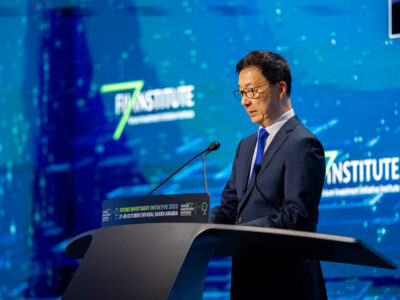In the last few years it has been observed that the threat landscape in the Middle East and Africa has been rapidly evolving with the region’s growing reliance on technology. The reasons for increased threat activity are no mystery.
Since mid-2020, Covid lockdowns forced organisations to digitally transform or lapse into obscurity. Much as animals at watering holes make easy prey, digitally exposed businesses became attractive targets for predators.
According to IDC, by 2025, global digital transformation project spending will reach $2.8 trillion, so unless enterprises do more to protect themselves, incidents will continue to rise in frequency and severity.
The Trend Micro Midyear Report shows new ransomware groups are mainly going after small businesses with up to 200 employees and medium-sized businesses with up to 1,000 employees.
So far in 2022, Trend Micro has protected organisations around the world from more than 63 billion threats, which according to the company’s Area Vice President and Managing Director for the Middle East and Africa (MEA), Dr. Moataz Bin Ali, is a 52% increase on 2021.
But in MEA, where Trend Micro reports the detection and blocking of more than 418 million email threats, some 57 million malware attacks, and around 34 million URL attacks, organisations have largely outperformed those in other regions, which Bin Ali attributes to widespread planned reinforcement of digital infrastructures.
“Enterprises of all sizes in the region must consistently safeguard their digital assets, networks, and overall infrastructure against attacks from ransomware and advanced persistent threats, as well as protect against increased vulnerabilities,” he says.
The region’s astute approaches to bolstering cybersecurity strategies centered on the gathering of actionable insights and the adoption of multi-layered solutions that “have the power to significantly improve protection and business flow throughout every stage of operations”, Bin Ali added.

As remote and hybrid workplaces become commonplace, increased investment will be necessary. Bin Ali believes that cloud-native technologies, backed by the online exchange of crucial information and transactions, represent the best option for all scales of enterprise.
“Proper cybersecurity resources are vital for an organisation to succeed, as they help enterprises to scale while shielding their operations from cybercriminals,” Bin Ali explains. He warns that the widespread adoption of advanced technologies such as IoT, which could streamline supply chains and bring a range of efficiencies to digital environments, would not be possible without robust cyber-protection.
“The threat landscape continues to evolve,” he says. “Now we have the likes of ransomware-as-a-service and malware-as-a-service that bring cloud-native economies to threat actors and allow them to scale up their campaigns. If you also consider crypto-mining and the dark side of the Metaverse, today’s security professionals have a lot to contend with.”

Alongside the threat landscape’s newcomers sit the usual suspects. Throughout 2022, Trend Micro recorded an increase in cloud threats, evolutions in ransomware strains, and the repurposing of older vulnerabilities, as well as a continued reliance on supply-chain attacks and commodity attacks.
“Enterprises are still in the process of migrating to the cloud, which means malicious actors will continue to monitor activities in the cloud and wait for their moment to pounce,” Bin Ali says.
“And IoT adoption and hybrid workforces call for a rethink when it comes to the platforms, we use to provide intrusion prevention and detection, network forensics, and other solutions. How are we going to secure the Metaverse? How can we protect the NFT community? How can we ensure consumer and business trust in real-time financial transactions that clear instantly and prohibit rollback? What about privacy? We have a lot of work ahead of us.”
Brand View allows our business partners to share content with Arabian Business readers.
The content is supplied by Arabian Business Brand View Partners.








